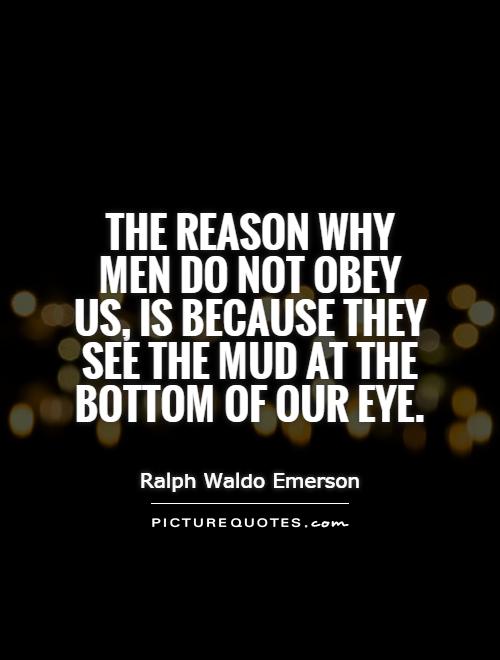The reason why men do not obey us, is because they see the mud at the bottom of our eye

The reason why men do not obey us, is because they see the mud at the bottom of our eye
Ralph Waldo Emerson, a renowned American essayist, lecturer, and poet, was known for his profound insights into human nature and the complexities of the human experience. One of his most famous quotes, "The reason why men do not obey us, is because they see the mud at the bottom of our eye," speaks volumes about the importance of self-awareness and introspection in our interactions with others.Emerson believed that our actions and behaviors are a reflection of our inner selves, and that others can see through any facade we may try to present. In this quote, he suggests that if we are not true to ourselves and do not address our own flaws and shortcomings, others will be able to see through our pretenses and will not trust or obey us.
The "mud at the bottom of our eye" symbolizes the hidden imperfections and insecurities that we may try to conceal from the world. It represents the parts of ourselves that we may be ashamed of or unwilling to confront. Emerson is warning us that if we do not acknowledge and work on these inner issues, they will inevitably manifest in our interactions with others, leading to mistrust and disobedience.
Emerson's words serve as a reminder that true leadership and influence come from a place of authenticity and self-awareness. In order to earn the respect and obedience of others, we must first be willing to confront our own flaws and insecurities. By doing so, we can cultivate a sense of integrity and honesty that will inspire trust and loyalty in those around us.
Ultimately, Emerson's quote challenges us to look inward and strive for self-improvement in order to become better leaders and individuals. Only by addressing the "mud at the bottom of our eye" can we hope to gain the respect and obedience of others.












 Friendship Quotes
Friendship Quotes Love Quotes
Love Quotes Life Quotes
Life Quotes Funny Quotes
Funny Quotes Motivational Quotes
Motivational Quotes Inspirational Quotes
Inspirational Quotes